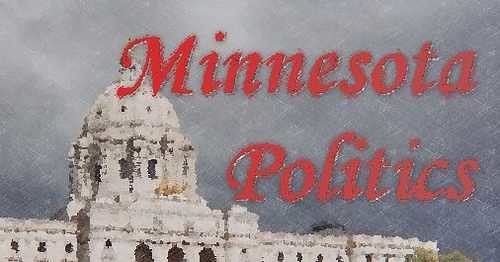Well, we knew what was coming based on his State of the State address and recent media reports; the only question was how bad it would be. Now we know the answer.
Here are some roundups.
First things first: this budget will raise taxes. It will raise property taxes for schools. It will raise property taxes for health care. It will raise traffic ticket surcharges. It will delay scheduled tax sunsets. So, any way you look at it, Pawlenty broke his "no new taxes" pledge. However, he did not raise either income taxes or sales taxes, which are the only taxes that the Taxpayer's League care about, for some odd reason.
Second, this plan is full of gimmicks and shortsighted budget decisions that will hurt us in the long run. The casino revenue is purely a gimmick. In order to cut the budget deficit, Pawlenty is counting on a one-time licensing fee of $100 million. Fixing a permanent budget deficit with one-time money is like taking a cash advance on your credit card to pay the mortgage. That's not a winning strategy. As an aside, it's interesting to note that Pawlenty is selling out social conservatives, who oppose an increase in gambling, in order to placate the radical economic conservatives at the Taxpayer's League. He is taking right after Bush and national Republicans when it comes to that. When will social conservatives realize that they are simply being used by Republicans?
When it comes to health care, Pawlenty is shooting our state in the foot while taking away our insurance. He proposes drastic cuts in eligibility, to the point where you would have to make less than $600 a month in some situations in order to quality for assistance. This plan will not reduce the cost of health care. This plan will not prevent these people, many of whom work full-time jobs, many of whom have addictions, many of whom have mental health issues, from getting sick. This plan will simply force people to give up preventative care and wait until they were extremely sick to turn to the only options they have, the emergency rooms. Hospitals would be forced to pay for this uncompensated care, increasing property taxes and insurance rates.
Health care in this country is getting out of control. The Republican response is to do nothing that addresses rising costs. They think that providing health care savings accounts will magically create money that people can spend on increasing premiums. They also say that medical malpractice is out of control, even though it makes up less than 2% of all health care spending. Eliminate malpractice entirely, and at the rate health care premiums are going up, we would be back to where we started in less than six months. Pawlenty is following the exact same plan of inaction, choosing to pass up the opportunity to make some drastically needed changes in our health care economy.
So what do we do? Well, the 2001 property tax reform is officially undone with this budget. Those property tax cuts which did exist are gone. It is becoming more and more evident that we can't afford the tax cuts of 2001 and earlier. It's time to roll back some of those tax cuts, starting with rolling back the tax cut for people who make more than $200,000 a year. These people now pay less in state and local taxes as a percentage of their income than the hard-working middle class. There is nothing wrong with expecting them to pay their fair share.
To wrap up, I heard Pawlenty say, especially with regards to health care, that Minnesota is more generous than other states. And that is certainly true. But there's a reason for that. Minnesota didn't become the healthiest state by ignoring the health care needs of those people who work good jobs but don't get health insurance. We can't ignore those people in the shadows simply because a dozen people at the Taxpayer's League have a problem with them.
When people say that high taxes and government spending are no guarantee of prosperity, they are absolutely right. However, wise investment is. Minnesota has chosen to make wise investments in the health and education of its citizens, and we have reaped the benefits. Pawlenty doesn't want to turn us into a Mississippi, but he does want to make us average. He wants to replace "The Good Life" with "The So-So Life." Deep down, I don't think Minnesota wants this.


